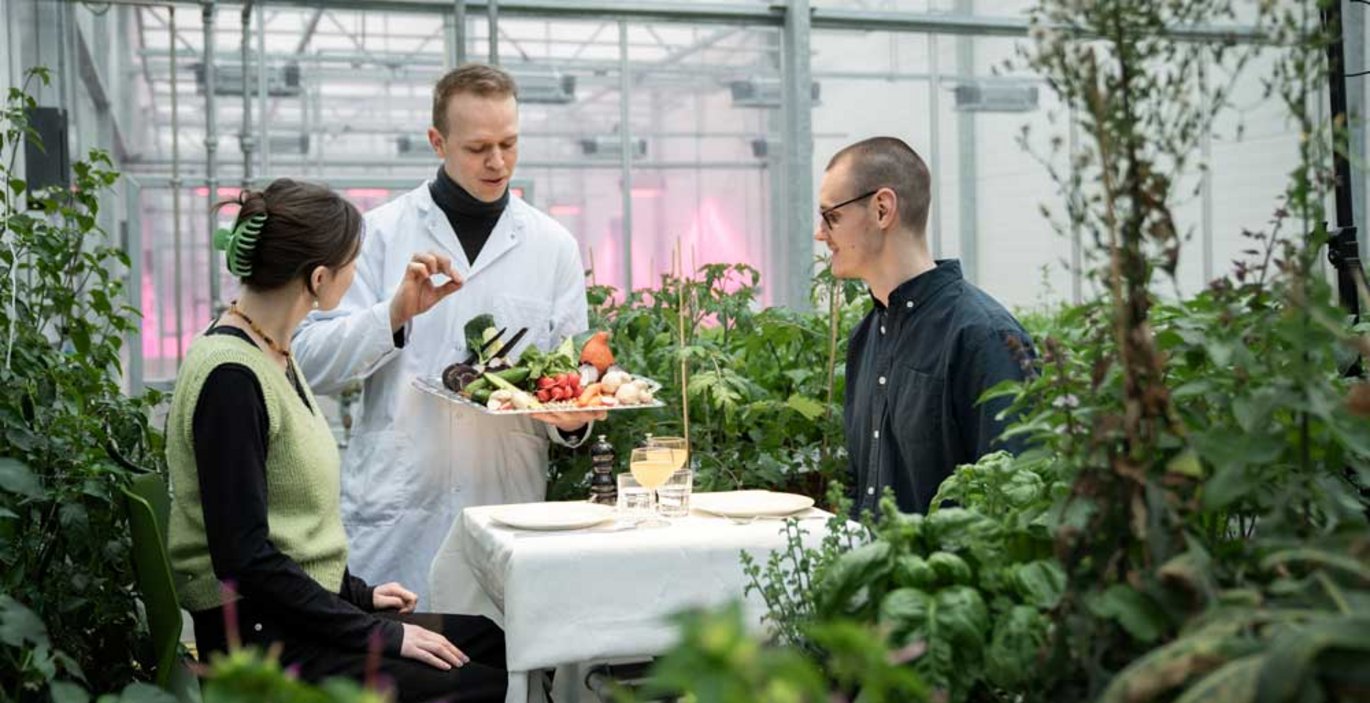New degree programme to bolster sustainable and plant-based agriculture
It is vital that considerably more crops are returned to the dining table instead of using them as animal feed. Graduates from Aarhus University's new degree programme will help find out how to grow the foods of the future, while taking into account agriculture, the climate and the environment.

Foods of the future have to be much more plant-based if we are to protect the climate, the environment and biodiversity, both locally and globally. This means we have to rethink the way we produce food today. Professor Jørgen E. Olesen from Aarhus University, one of Denmark's most respected climate researchers, says:
"In Denmark, the focal point of plant production is animal feed. Now it's time to turn things around and use much more of our crops directly in food production."
Jørgen E. Olesen is head of the Department of Agroecology at Aarhus University's campus near Viborg. A new degree programme in plant and food science will open here this summer.
"When developing the foods of the future and better ways of growing them in a rapidly changing climate, we need specialists with extensive knowledge about crops, plant-based protein and sustainable cultivation methods. We need young people who can see the potential of plants as a basis for our diet, and as a basis for use in future materials, fossil-free energy and much more," says Jørgen E. Olesen.
Close to the industry but with hands in the soil
Students on the degree programme in plant and food science will focus on how agriculture can interact better with society in the future. Because when agriculture, nature and climate interests seem to conflict in debates about carbon-emitting lowland soils, oxygen depletion in Danish waters, methane-burping cows and declining biodiversity, we need specialists who can see the matter from several sides and develop new solutions.
"The new degree programme in plant and food science will help us manage the green transition and address the interplay between agriculture and nature. This requires students to gain a deep understanding of plant and food production, as well as of sustainability and the challenges and opportunities of the new technologies we’re developing," says Bo Vangsø Iversen, who is an associate professor at the Department of Agroecology and head of the new degree programme.
The new degree programme will open at AU's new campus, AU Viborg, where researchers have had their experimental fields and laboratories for many years. This means that students on the degree programme in plant and food science will get their hands in the soil early on.
"The degree programme in plant and food science will build on the programme’s proximity to everything the students are studying, but also its proximity to the industries they will be working in after graduation. Our students will also discover that there is no single solution to problems, but many – and we need to find even more. Therefore, we’ve developed a degree programme that gives students a broad range of skills to support the agriculture and crop production of the future,” says Jørgen E. Olesen.
About the Plant and Food Science programme
On the degree programme in plant and food science, students will acquire basic knowledge about plants as the basis for future sustainable production of food, animal feed and energy. They will gain insight into how we can make optimal use of our resources and thereby contribute to solving some of society's major challenges with the help of plant-based protein for food, new food technologies and production of biogas, for example.